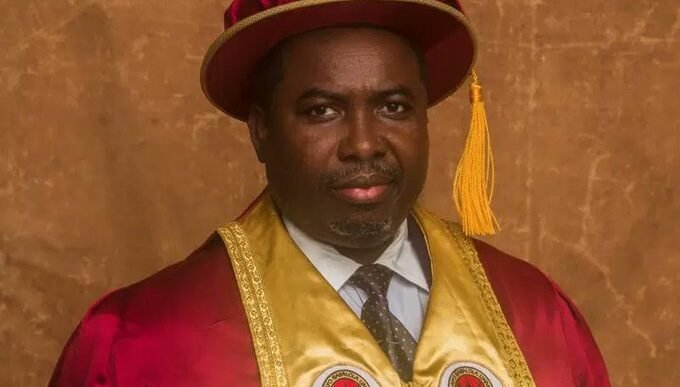YENAGOA, Nigeria — October 16, 2025 — Former President Goodluck Ebele Jonathan has criticised successive administrations in Bayelsa State for abandoning key development projects he initiated during his tenure as governor, describing the trend as a “wasteful culture” that undermines progress and sustainable governance.
Jonathan made the remarks on Wednesday at the inauguration of the Best Western Plus Hotel in Yenagoa, the Bayelsa State capital. The event, attended by top government officials, business leaders, and traditional rulers, marked one of the few occasions in recent years where the former president publicly commented on state-level governance in his home state.
Jonathan Decries Project Abandonment
Speaking at the ceremony, Jonathan lamented that several landmark projects he started while serving as Bayelsa governor between 2005 and 2007 had been neglected by those who came after him. According to him, many of these projects were designed to stimulate tourism, attract investors, and promote economic diversification in the oil-rich but underdeveloped state.
“When a governor leaves office, the next governor doesn’t want to follow up, and most of the money spent goes to waste,” Jonathan said. “It is a major problem in governance, and we must begin to change this attitude if we are serious about development.”
He explained that during his administration, he initiated the construction of several hotel and tourism projects intended to make Bayelsa a regional hub for conferences, hospitality, and investment. However, he expressed regret that most of these projects were either abandoned or left incomplete after his departure from office.
Legacy Projects Left Unattended
Jonathan highlighted that one of his main development philosophies as governor was to position Bayelsa as a destination for investors and tourists through infrastructural upgrades. Among his initiatives were the establishment of modern hotels, entertainment facilities, and transport infrastructure to complement the state’s natural attractions, such as its mangrove coastline and unique cultural heritage.
“Some of the hotels we began constructing were not just for luxury,” he explained. “They were part of a larger plan to create jobs, bring conferences and major events to Yenagoa, and make Bayelsa a place investors could visit comfortably. Unfortunately, many of those initiatives never saw completion.”
While Jonathan did not mention specific administrations, his remarks were interpreted as a veiled criticism of successive Bayelsa governors who, over the years, have either abandoned or rebranded projects initiated by their predecessors.
A Call for Policy Continuity
The former president stressed that Nigeria’s development challenges are not necessarily due to a lack of ideas or resources but rather the persistent failure of leaders to sustain policies and projects once political transitions occur.
He argued that true governance should transcend party lines, emphasizing that “state resources belong to the people, not to individual politicians.”
“Governance is about continuity,” he said. “If every new government decides to discard the projects of its predecessor, we will never make progress. Leadership should not be about ego; it should be about service.”
Jonathan noted that many countries that have achieved rapid development did so through sustained implementation of long-term plans that survive changes in administration. He called on Nigerian leaders, both at the state and federal levels, to embrace a culture of institutional continuity.
Best Western Plus Hotel: Symbol of Renewed Investment
The inauguration of the Best Western Plus Hotel, a modern hospitality complex in Yenagoa, represents one of the few successful examples of a public-private partnership in Bayelsa’s tourism sector. The hotel, developed under the Best Western global franchise, aims to boost tourism, create employment opportunities, and attract both local and international visitors to the state.
Jonathan commended the hotel’s promoters for investing in Bayelsa despite economic challenges, noting that the project aligned with his original vision for the state’s hospitality and tourism growth.
“This project gives me joy because it reminds me of what we tried to build when I was in office,” he said. “It shows that Bayelsa still has enormous potential if only we can maintain focus and consistency in our development agenda.”
The former president also called on the state government to create a more enabling environment for private investors through improved infrastructure, security, and business-friendly policies.
Stakeholders React to Jonathan’s Comments
Jonathan’s remarks have sparked reactions among political observers, civil society leaders, and development experts, many of whom agreed with his concerns about the lack of policy continuity in Nigeria’s governance system.
The Bayelsa State chapter of the Nigerian Institute of Architects, in a statement on Thursday, said the former president’s comments were a “wake-up call” for policymakers to prioritize completion of existing projects before launching new ones.
Dr. Felix Eremie, a development economist based in Port Harcourt, told reporters that Jonathan’s statement reflects a broader national issue. “Across Nigeria, we see the same pattern — projects worth billions are abandoned because of political differences or a desire for every new administration to start afresh. It’s a culture that drains public funds and wastes human capital,” he said.
Similarly, the Niger Delta Development Forum (NDDF) described Jonathan’s comments as “timely and accurate,” urging Bayelsa’s current leadership to commission an audit of all abandoned state projects with a view to reviving viable ones.
A Broader Pattern Across Nigeria
Jonathan’s remarks also resonate beyond Bayelsa, reflecting a national governance dilemma where political transitions often lead to the abandonment of ongoing projects. From federal highways and airports to state housing estates and hospitals, Nigeria has witnessed countless examples of uncompleted projects spanning multiple administrations.
Experts estimate that over ₦12 trillion worth of public projects remain abandoned across the country, many of which could have transformed local economies if completed.
Analysts argue that political continuity laws — such as mandatory project tracking systems, public reporting mechanisms, and legislative oversight — could help reduce wastage and ensure that public investments yield long-term benefits.
Jonathan’s Continued Influence
Though Jonathan has largely maintained a low political profile since leaving office in 2015, his influence in Bayelsa politics remains significant. As a respected statesman and the state’s most prominent political figure, his words continue to shape discussions around governance and development.
Political analysts say his latest comments may encourage greater scrutiny of ongoing and abandoned projects in the state, particularly as Bayelsa prepares for another election cycle in 2027.
A Call for Sustainable Leadership
Closing his speech, Jonathan urged current and future leaders to see governance as a relay race rather than a competition of egos.
“Every administration should see itself as building upon the foundation of those before it. That is how nations grow,” he said. “We owe it to our people to ensure that every naira spent on public projects brings value.”
He further appealed to Bayelsans to hold their leaders accountable and demand completion of ongoing infrastructure that can drive tourism, job creation, and economic diversification.
Conclusion
Jonathan’s remarks at the Yenagoa event underscore a critical message — that sustainable development in Nigeria requires continuity, cooperation, and the courage to complete what others have started.
As Bayelsa’s political and economic future continues to evolve, the former president’s words serve as both a reminder and a challenge to leaders: that progress cannot thrive in a culture where every change in leadership resets the state’s developmental clock.














